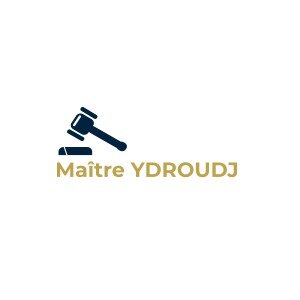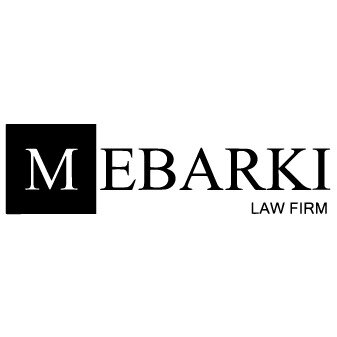Best Renewable & Alternative Energy Lawyers in Algeria
Share your needs with us, get contacted by law firms.
Free. Takes 2 min.
Or refine your search by selecting a city:
List of the best lawyers in Algeria
About Renewable & Alternative Energy Law in Algeria
Algeria has emerged as a significant player in the renewable and alternative energy sector, owing to its vast solar and wind resources. The government has been actively pursuing diversification of its energy mix to reduce reliance on fossil fuels and embrace cleaner sources. This shift is supported by a dedicated legal framework promoting investments, regulations for generation and distribution, and policies aimed at meeting international commitments on climate change. The evolving legal landscape focuses on solar, wind, biomass, and other alternative energy projects, encouraging both local and foreign participation.
Why You May Need a Lawyer
Legal issues in the renewable and alternative energy field can be complex and technical. Individuals and companies may need a lawyer in several scenarios, such as:
- Drafting and negotiating contracts related to solar or wind energy projects.
- Navigating regulatory approvals and compliance requirements.
- Securing permits and licenses for construction and operation of energy facilities.
- Handling land use and zoning laws.
- Managing environmental impact assessments and regulatory reporting.
- Addressing disputes with contractors, suppliers, or governmental entities.
- Advising on tax incentives and government support programs.
- Protecting intellectual property related to innovative technology.
Local Laws Overview
Algerian renewable and alternative energy activities are principally governed by laws and regulations designed to promote a sustainable energy mix. Key aspects include:
- Renewable Energy Law: Algeria has adopted specific laws and decrees governing renewable energy development, with incentives for investors and outlines of responsibilities for different administrative levels.
- National Renewable Energy Development Program: The government has set national targets for renewable energy production, aiming for a significant share of the nation’s electricity generation by a set deadline.
- Investment Law: Provides benefits and guarantees to both foreign and Algerian investors in the renewable sector.
- Environmental Regulations: Projects must comply with environmental protection standards, often requiring environmental impact assessments.
- Permit and Licensing Requirements: Operators must obtain approvals from key agencies before starting construction or commercial activity.
- Feed-in Tariffs and Power Purchase Agreements: Support purchase of generated renewable energy at predetermined rates.
- Grid Access Rules: Regulate how renewable energy producers connect to the national electricity grid.
These laws and accompanying regulations can be intricate, necessitating careful review and often legal expertise for successful navigation.
Frequently Asked Questions
What types of renewable and alternative energy are most prominent in Algeria?
Solar and wind are the most widely promoted renewable energy sources in Algeria, although there is also interest in biomass and geothermal energy.
Can foreigners invest in Algeria's renewable energy sector?
Yes, foreign investment is encouraged, and there are specific legal provisions and incentives to attract international partners to renewable energy projects.
What permits are required to start a renewable energy project?
You must obtain environmental permits, construction authorizations, and operating licenses from various governmental bodies, frequently starting with the Ministry of Energy and Mines.
Are there financial incentives for renewable energy producers?
Algeria offers fiscal incentives, customs benefits, and feed-in tariffs to investors and developers in the renewable sector, subject to compliance with regulations.
How do land use laws affect renewable energy projects?
Projects must comply with local zoning and land use laws, which may restrict where facilities can be built. Negotiating land use may require agreements with local authorities or private landowners.
Is grid access guaranteed for renewable energy producers?
Law provides mechanisms for renewable energy producers to access the national electricity grid, but technical and regulatory requirements must be fulfilled.
Are environmental impact assessments always necessary?
Most large-scale projects require an environmental impact assessment to ensure compliance with environmental protection laws and to minimize potential harm.
What happens if there is a dispute with a contractor or government agency?
Disputes can be resolved through negotiation, mediation, or, if necessary, formal legal proceedings in local courts or arbitration, depending on the agreement terms.
How can I protect my intellectual property in renewable energy technology?
You can register patents and protect technical innovations through Algerian intellectual property agencies, ensuring your technology is safeguarded.
Who oversees renewable energy regulations in Algeria?
Primary oversight falls under the Ministry of Energy and Mines, in coordination with the Algerian Electricity and Gas Regulatory Commission (CREG) and other agencies.
Additional Resources
For people seeking more information or official guidance on renewable and alternative energy in Algeria, the following resources may be useful:
- Ministry of Energy and Mines of Algeria - Responsible for setting national energy policies and licensing.
- Algerian Electricity and Gas Regulatory Commission (CREG) - Regulatory authority for electricity and natural gas, including renewables.
- National Agency for the Promotion and Rationalization of Energy Use (APRUE) - Agency supporting energy efficiency and renewable initiatives.
- National Investment Development Agency (ANDI) - Provides information about investment processes, benefits, and support in Algeria.
- Environmental Protection Agency - Facilitates compliance with environmental standards for development projects.
Next Steps
If you need legal assistance regarding renewable and alternative energy in Algeria, consider taking the following steps:
- Identify the specific area of concern, such as investment, regulation, contract drafting, or dispute resolution.
- Collect all relevant documents, contracts, permits, correspondence, or official notifications related to your project or issue.
- Consult with a lawyer or legal advisor experienced in energy law and familiar with the Algerian legal context.
- Prepare a list of questions or objectives to maximize the value of your initial consultation.
- Review and understand your rights and obligations under local laws, with your legal advisor’s assistance.
Thorough preparation and expert legal guidance can help you successfully navigate the complex regulatory landscape and advance your renewable or alternative energy projects in Algeria.
Lawzana helps you find the best lawyers and law firms in Algeria through a curated and pre-screened list of qualified legal professionals. Our platform offers rankings and detailed profiles of attorneys and law firms, allowing you to compare based on practice areas, including Renewable & Alternative Energy, experience, and client feedback.
Each profile includes a description of the firm's areas of practice, client reviews, team members and partners, year of establishment, spoken languages, office locations, contact information, social media presence, and any published articles or resources. Most firms on our platform speak English and are experienced in both local and international legal matters.
Get a quote from top-rated law firms in Algeria — quickly, securely, and without unnecessary hassle.
Disclaimer:
The information provided on this page is for general informational purposes only and does not constitute legal advice. While we strive to ensure the accuracy and relevance of the content, legal information may change over time, and interpretations of the law can vary. You should always consult with a qualified legal professional for advice specific to your situation.
We disclaim all liability for actions taken or not taken based on the content of this page. If you believe any information is incorrect or outdated, please contact us, and we will review and update it where appropriate.
Browse renewable & alternative energy law firms by city in Algeria
Refine your search by selecting a city.












